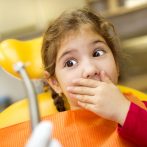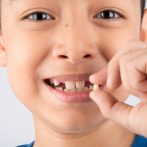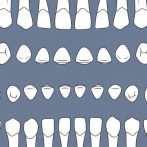What Makes A Good Kids Dentist?
What REALLY Makes A Good Kids’ Dentist Searching for a great kids’ dentist can be like searching for the elusive needle in the haystack. With so many dentists to choose from, parents may wonder exactly what they should be looking for? The way your child feels about their first experiences at the dentist will set the scene for their outlook about dental visits for the rest of their lives! Choosing an experienced dentist ensures they have a positive experience from the beginning to secure a lifetime of good oral health. Easing dental anxiety for your child Children are often apprehensive about visiting the dentist. If it is their first time, the chair, tools and noises can seem overwhelming and even scary for a young child. If they have visited before and had an unfavourable experience, this can make it even more difficult for a subsequent visit! Kids are not the only ones facing dental anxiety, of course; many adults have similar fears (which ironically often began in childhood!) A great dentist is well equipped to handle dental anxiety in people of ALL ages, from the youngest member of the family to the oldest. A gentle and caring approach is a prerequisite for any great dentist, and this extends to the dental assistants, hygienists and reception staff. From the moment you walk in the door with your child, you should be made to feel at ease. Working slowly and carefully, an experienced, child-friendly dentist will take the time and care required to make your child’s appointment as pleasant as possible, ensuring their comfort at all times. It is important that the dentist builds the trust of your child, making them laugh and feel comfortable in their surroundings – as well as the trust of the parent! Tips for your child’s dental visit Finding a quality, experienced and personable dentist is essential for your child. In addition, you can do the following to help make the experience a positive one: Read children’s books about visiting the dentist. Play make believe dentist visits at home and talk about the chair, tools and noises. Only talk about the dentist in a positive way in front of your child. Cheerful kid’s music in the background can help your child to feel at ease during their visit. The gentle kids’ dentist Robert Duhig has a long-held reputation in Sandgate as the “gentle dentist”, and for good reason! After 28 years of running his own practice, Rob provides the highest standard of service for the families he looks after. His extensive experience and gentle approach make him a trusted kids’ dentist, and a friendly, approachable dentist for people of all ages. If you are looking for...
Read More



